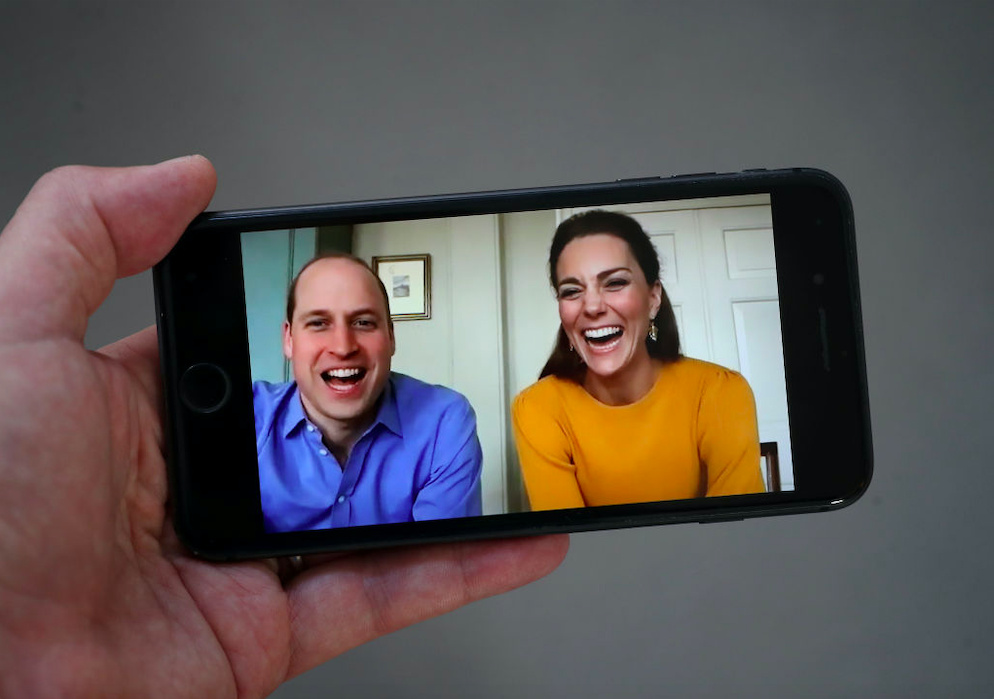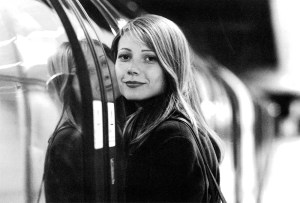To cast your eye across someone’s bookshelves is to understand them. Alan Bennett certainly thought so: ‘A bookshelf is as particular to its owner as are his or her clothes; a personality is stamped on a library just as a shoe is shaped by the foot.’ Journeying across my own bookshelves I see the spines of my life, not curated or color-coded, but jammed in messily and haphazardly, out of chronological order, just like experience itself. Brideshead Revisited next to Healing the Child Within. Babar next to The Fallen of the Somme. Since I got married, my husband’s books now number among my own; political biographies next to novels, a literary record of our lives before we met, pages and pages of the past.
Until this year, I had always felt rather rude examining other people’s bookshelves, as if to delve too deep into their collection would be an act of unashamed voyeurism. Before COVID, it would have been. But not now. Since Zoom entered our lives, the bookshelf has become the Zoom backdrop du jour, a conscious curation of ourselves that we give to the public. Like Montaigne’s personal essay, the bookshelf has become a form of self-fashioning, a way of arranging ourselves into being, one hardback at a time. To share yourself is to share your shelf.
Much ink was spilt during the first lockdown on the topic: the Duchess of Cambridge’s carefully arranged (and clearly untouched) hardback classics, Ben Fogle’s ‘rainbow’ bookcase out of which he appears like a kind of leprechaun, Scottish first minister Nicola Sturgeon’s vast library which she surely needs a dewey decimal system to navigate. The Twitter account @BookcaseCredibility mercilessly exposes those caught in the act of self-promotion: Yanis Varoufakis’s positioning of his book behind his bald pate, David Cameron unhappily and unluckily captured in a Zoom ‘waiting room’ tossing aside books on World War Two to make room for his biography.
[special_offer]
;768:[300×250,336×280,320×100];0:[300×250,320×100,320×50]”]Before the advent of Zoom our lives took place in the foreground of experience: at work, on vacation, in restaurants, outside of the home. Now confined in our second lockdown, we are confronted with the background, which may have engaged us only intermittently before. The background has overtaken the foreground as a measure of who we are; like a Surrealist painting, the distance between the foreground and the background has disappeared in a puff of smoke.
Of course, bookshelves are not simply a repository for books but all sorts of other miscellany: photographs, Orders of Service, sports memorabilia (see UK health secretary Matt Hancock’s claret study), objects found on our travels. A shot of Joe Biden standing in front of his bookshelf reveals all the things you’d expect — biographies of the Kennedys and Carter of course — but also plenty of things that lie beyond the shelf: photographs of his children, books plonked the wrong way into the shelf, an Australian flag, what improbably looks like an effigy of Chaplin. These objects reveal the limits of self-curation, the untidy seams of where public meets private, the place where representation and reality collapse into one another. A far more biographical measure than any bookcase.
I rarely Zoom but if I did, I would arrange my ‘shelfie’ carefully. I would consign all the self-help books to the bin and put my copies of Babar and The Famous Five in my daughter’s room. I would arrange my Sartre next to my Shakespeare and smile winningly, and knowingly at the camera. Between the digital and real constructions of myself you could not slide even the slenderest of paperbacks. There is much to be said for Zoom, for the way it has connected us in the strangest of times. But in among the shelves, there is sadness too. Sadness for the pages of ourselves lost in the act of conscious self-curation, sadness for the loss of the unexpected and unstaged moments of real encounters, sadness at the intrusion into our intimate lives, however mundane they may be. Then again, you could Zoom against a blank wall, pitting only yourself against the probing eye of the camera. I think we’d all agree that would be far too gloomy though, be a sport and show us your true ‘shelf’.
This article was originally published on Spectator Life.
;768:[300×250,336×280,320×100];0:[300×250,320×100,320×50]”]
























